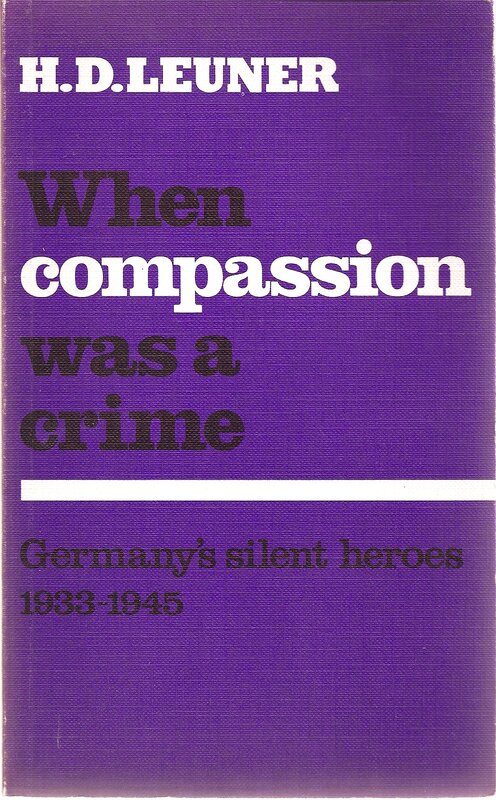When compassion was a crime : Germany's silent heroes, 1933-45
Item
Title
When compassion was a crime : Germany's silent heroes, 1933-45
Description
Argues that not all of Germany was enthusiastic about the Nazi regime, including its policies against the Jews, and that it is wrong to make improper generalizations on the Germans as a guilty nation. Brings numerous examples of Germans who helped Jews in 1933-45 and rescued them when the mass murders began. If even expressing compassion to Jews or protesting against Nazi politics in 1933-38 could be punished, so rescue of Jews during the war could inflict capital punishment on the rescuer. Dwells specifically on the attitudes and activities of the Churches vis-à-vis the Nazi persecution of Jews. The Catholic and various Protestant Churches, as institutions, failed to do their most to help Jews or Jewish converts to Christianity. But some clergymen of various denominations, from rank-and-file to higher up in the hierarchy, rescued Jews and Jewish converts and some paid for it with their lives. Although Catholics did more for victims of Nazi racial persecution than Protestants, as a whole the failure of the Catholic Church to withstand the Nazi policies presents a more grievous picture given its international character and greater independence of the Nazi state.-- From Google Books
Creator
H. D. Leuner
